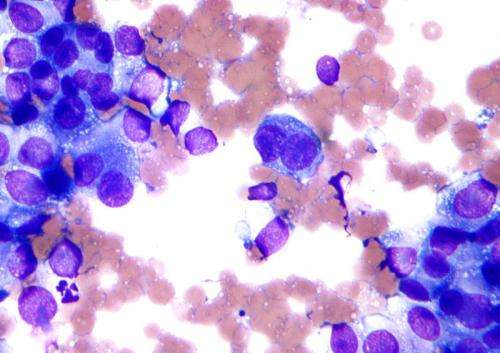Researchers find new potential targets for skin cancer treatment

Mutations of the gene MLL4 in epithelial skin cells can inhibit healthy cell turnover and may lead to keratinocyte cancers, which collectively outnumber all other human cancers. Targeting pathways altered by MLL4 mutations to induce proper cell turnover and death offers an approach to suppress tumor growth, according to a new study from the Perelman School of Medicine at the University of Pennsylvania. The study was published this month in the journal Science Advances.
The gene MLL4 is one of the most commonly mutated genes across all of human cancers. Previous work has shown that MLL4 is linked to tumor suppression in a variety of cancers, but its role in skin cancer was unknown. In order to uncover how MLL4 influences cancer growth, researchers knocked out only this gene in the epithelial tissues of mice and found that skin cells proliferated, the skin thickened, and a form of normal skin cell turnover and death, called ferroptosis, was inhibited.
"Your skin cells need to be able to undergo cell death," said Brian Capell, MD, PhD, an assistant professor of Dermatology and Genetics and lead author of the study. "If cells don't die and turn over, they stick around, continue to grow, and become cancerous. We saw that a loss of MLL4 impaired ferroptosis by activating genes that encourage tumor growth while simultaneously suppressing genes that prevent cancerous proliferation."
To combat cancer-cell development in individuals with MLL4 genetic mutations, the researchers believe that specific medications that can promote ferroptosis may be a future way to inhibit cancer growth and encourage healthy cell turnover.
"The good news is that there are pharmaceuticals currently available that correct and promote the pathways that are impaired when MLL4 is mutated," said Capell. "Our lab plans on studying whether these ferroptosis-promoting medications can be effective to treat skin cancers like squamous cell carcinoma. Another potential avenue for treatment involves testing whether these medications can be given in combination with other anti-cancer drugs such as immunotherapies to enhance the abilities of each to stop cancers."
Aside from cancer, the Penn scientists believe that modulating ferroptosis may have a significant impact on other skin disorders marked by aberrant skin turnover, too, such as psoriasis. According to the American Academy of Dermatology Association, it's estimated that over 85 million Americans have some kind of skin disease.
More information: Shaun Egolf et al, MLL4 mediates differentiation and tumor suppression through ferroptosis, Science Advances (2021). DOI: 10.1126/sciadv.abj9141



















